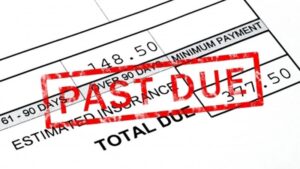HMRC Targets SMEs, But Ignores Corporate Tax-Dodgers
Restaurateurs and other small business owners are being targeted by HM Revenue & Customs (HMRC) as part of a national crackdown on tax evasion.
Over the next few weeks, specialist tax inspection teams will pursue restaurants with intensive sting operations across London, Manchester, Liverpool, Cumbria and parts of and Scotland.
For many years, HMRC has viewed the restaurant trade as a ‘high-risk’ sector, but the announcement suggests adoption of a new approach to dealing with non-compliance.
Over the next four years, the government plans to raise more than £80bn on behalf of the Exchequer, primarily through a clampdown on non-compliance and tax avoidance.
While the objective and sum HMRC are both mammoth, I still think the amount of resources being pushed into this particular endeavour, which is effectively an attack on small and medium enterprises (SMEs), is astonishing.
SMEs cannot afford to employ specialist accountants and lawyers to help them pay minimal or no tax, but many of the FTSE 100 and other large companies that do have been offered voluntary tax disclosure facility schemes.
It’s part of their business models to avoid paying tax, so surely it would be more cost-effective for HMRC to increase the revenue it collects from these corporations? And yet the axe still falls on the SME trader. You have to ask yourself; ‘why’?
Chances are; the larger businesses have former government ministers sitting on their non-executive boards.
But SMEs rarely have access to influential advisers so it’s just the same old politics: the Exchequer needs more revenue, but targets the less-well-off rather than corporations, even though SMEs are the engine room of the British economy.
This scheme is nothing more than the Tory-led coalition trying to get HMRC to generate greater income.
But the truth is: if HMRC were to start bashing down the doors of large corporations, these companies would reign in the chequebooks and simply reduce the amount of donations the government receives come election time.
Conversely, the SME economy is easy pickings for creditors such as HMRC because it’s vibrant, creative, entrepreneurial and, most importantly, resilient.
Sadly, the consequences of this approach can be detrimental for small businesses as proportionally, they end up paying more tax than their larger counterparts.
Debtor Alert: Theodore Global Ltd
Theodore Global Ltd: A Company That Fails to Pay Its Staff and Trades While Insolvent If you’re thinking about working with, or for Theodore Global…
Read MoreIrene MacKenzie- The Gatekeeper of Silence
Irene MacKenzie and the Web Around William Jackson In the shadows of the alternative investment world, where buzzwords are abundant but redemptions are not, one…
Read MoreBilly Jackson Update Part 2: Companies of Interest
In our last blog on Billy Jackson, we exposed the web of enablers supporting his business operations. In this follow-up, we turn the spotlight on…
Read MoreThe Grim Truth for Loan Note Holders -79th Luxury Living Six Ltd (LL6)
No assets or safeguards. No clear path to recovery. If you’re one of the many investors who entrusted your money to The 79th Group’s loan…
Read More



